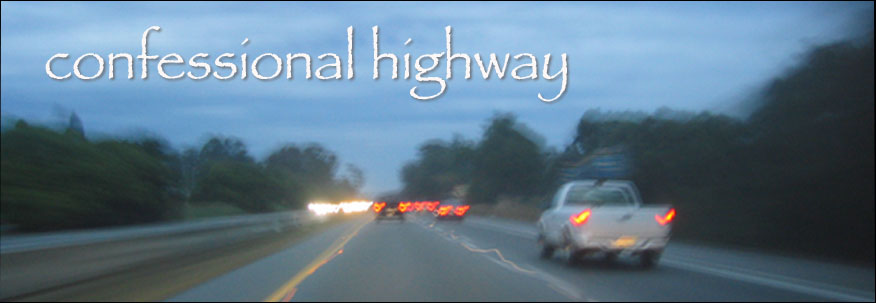Last year my son was my date, the night David Sedaris asked my then twelve-year-old to introduce him on stage, a simple request that lead to a memorable evening. Following that night, I wrote a piece about the adventure and then boldly mailed it off to David along with a thank you and a photo I’d snapped of him with my son. Not long after, I received a warm and witty reply full of details of his recent vacation with his boyfriend that included an anecdote about a midget bouncer at a bar. In order to respect the privacy of personal correspondence, I’ll leave it at that. Beside, you may read about it someday in The New Yorker.
When April rolled around this year, I found myself starting to dream about David Sedaris, odd dreams of nervousness as if I might forget to attend his reading. The morning of the event I worried that I would leave the tickets tucked in my living room drawer or would somehow lose them on the way to UCLA. Weird anxiety, I confess.
My son was to be my date again. We arrived at UCLA early with the plan of seeing if my son could say hi to David. And I really mean, ‘my son.’ I’ve more than let go of the idea of a budding friendship with the admired writer. That rapport belongs to David and my teen with me as a mere observational bystander.
We entered Royce’s lobby and looked for the woman who had taken us backstage last year. No walkie-talkie wielding employees to be seen, I considered approaching the box office and asking for assistance. A table sat in the lobby selling books, so we first wandered over to catch a glimpse of the offerings. My anxiety must have blinded me to the long line snaking from the table, but finally after observing all the books for sale and noting that I owned all except those by an author David was promoting, I glanced left. There sat David signing books. Pre-show. Calm as can be.
“He’s right there,” I said to my son. “Let’s get in line to say hi.”
We waited patiently, the only patrons not holding a book for signing. The line moved slowly, David taking the time to talk with each fan, sharing a personal moment with an anecdote attached. Finally we reached the front of the line. I pushed my son ahead of me and took a step back.
“Hi,” he said. “I’m Anthony. I don’t know if you remember me, but I introduced you last year.”
“Anthony, hi. I was thinking about you,” replied David. “You wanna do it again?”
“Sure,” said my son, and David reached for his wallet, pulled out a twenty, “Your stage fee,” he said, and handed it to my son. “Could you sign it?” my son asked, and he did. Anthony had doubled his earning potential in one year, but it hardly mattered. The ten was neatly tucked in his bedroom drawer and the twenty would take a place beside it.
David told us to meet him back at the table in twenty-five minutes. This year he’d be signing books right up until show time. As we stepped away, my son said, “‘Stage fee.’ See, I told you that’s what he said. Not ‘stage pay.’” I wondered if my son was requesting an edit of last year’s piece.
A UCLA Live employee offered us to wait in the green room and eat David’s food. “He never eats it,” she said, but this year we decided to just linger in the lobby. When time came for Anthony to go backstage with David, I didn’t follow. In the passage of a year, I’d seen that this was my son’s moment, that he deserved a private interaction with David to find the words he would say on stage, that I didn’t need to hover and interfere. David had been kind when I’d said hello, but just like last year, I felt his discomfort in small talk with me. And I was fine with that. Really. We are strangers who pass each other once a year, usually with me in the audience and David on stage. That is the natural order of things, at least for now.
As my son disappeared through the lobby by David’s side, I entered the auditorium. Despite the ban on photos, I’d been given permission to snap away while my son was on stage, so I pressed against a pillar up front to the right and waited. I peered into the wings, and finally I saw David and my son arrive deep in conversation. David saw me standing within view and pointed me out to my son who waved and looked really happy and relaxed. I appeared oddly conspicuous standing with my tiny digital camera in hand. In this age of fear, I wondered if anyone found my behavior suspicious, and I launched into a fantasy of my being jumped as the lights came down and I snuck forward camera ready to capture a precious moment. I’d lift the camera and threaten with a flash of light, be tackled by a well-meaning patron or usher, get removed from the theater, and miss my son’s moment.
Of course, none of that happened. The lights went down, my son emerged, I snuck forward and snapped largely worthless photos with my pocket camera’s weak flash just as my son said, “No photos, videos, or recordings.” Like last year but with the modification of a few words and a deeper voice, he told everyone to turn off “cell phones and pagers and anything annoying.” He added his praise of David as a writer who’d told him a funny story about kidney stones backstage.
And then he was done and replaced by David on stage.
I took my seat climbing over fans who seemed annoyed, but when Anthony took his seat beside me, my status was instantly elevated as if those around us were thinking, “Ah, she must be his mom.”
After David read his first piece, he paused, and like last year, thanked my son for his courage to come on stage with little warning in front of a room of nearly two thousand people. He then went on to say something like if he had a kid, he’d want him to grow up to be like Anthony, that anyone would want their kid to grow up to be like Anthony.
I couldn’t agree more. And I thank David Sedaris again for a wonderful evening and memory.

Tags:





